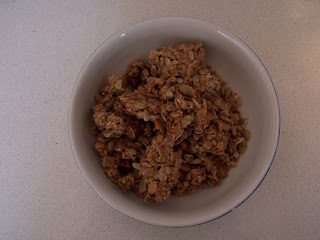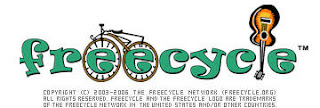 My last electric bill, for a period of 2 months, was 95 shekels. That's right, 95 shekels. For those of you not familiar with this wonderful Israeli currency, that's about 27 US dollars. Or, 13 dollars a month. To be fair, I do live in a small apartment and we are only a 2 person household, but it was still the lowest electric bill we've ever had and it gave me a great sense of accomplishment (plus some extra money in my pocket).
My last electric bill, for a period of 2 months, was 95 shekels. That's right, 95 shekels. For those of you not familiar with this wonderful Israeli currency, that's about 27 US dollars. Or, 13 dollars a month. To be fair, I do live in a small apartment and we are only a 2 person household, but it was still the lowest electric bill we've ever had and it gave me a great sense of accomplishment (plus some extra money in my pocket).If you want to save electricity too, here are some of my electricity saving tips:
Change your incandescent lightbulbs to CFLs. Compact fluorescent lightbulbs (which now come in a soft yellow color that's very similar to incandescents) generally use about 20% of the electricity used to power a regular incandescent lightbulb. Even if you only change the lightbulbs that you use most often, you'll still save electricity.
Unplug your electronic appliances and devices when not in use. I didn't know this until fairly recently, but electronic plugs (such as cell phone chargers, laptop chargers, etc.) still use a significant amount of electricity when they're just plugged into the wall. As soon as you're done charging something, unplug it from the outlet - you'll see the difference in your electric bill. Devices that are kept on standby or devices that have a built-in clock that's on all the time are also sucking up electricity all the time. I no longer keep my cable box plugged in or my TV on standby for that reason.
Take shorter showers. Not only does this save water, but shorter showers = less time and energy needed to heat the water. It takes a lot of energy to heat up water.
Turn off the stove burner a minute or two before you think the dish is done. The residual heat will finish cooking the dish and you'll save electricity.
Find other ways to heat/cool yourself, other than the air conditioner. Israeli winters are pretty mild, so I was able to save a lot of electricity by bundling up in my apartment rather than turn the air conditioner on. Now that it's warming up, I'm going to use fans (and popsicles) to cool myself down as much as possible.














